Homecoming Dean
UCLA Law Magazine | Fall 2023 | Volume 46
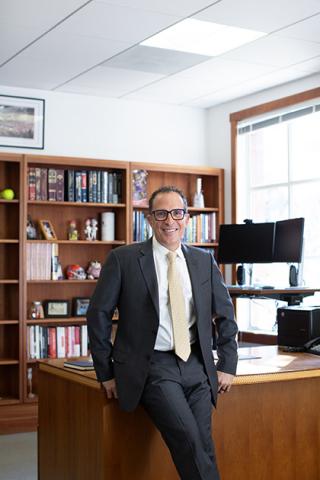
It is the late summer of 2023, and UCLA School of Law’s tenth dean, Michael Waterstone, is having a conversation in his bright and tidy office in the law building, just a few weeks into his term. A respected scholar of disability law and one of the legal academy’s most promising leaders, he has arrived at UCLA Law after a seven-year tenure as the dean of LMU Loyola Law School.
But the stories that he reflects on at this moment take him back far earlier – to the formative years when he learned that practicing the law is challenging but also filled with lasting fulfillment and, every so often, unparalleled moments of grace.
Around the start of his second year at Harvard Law School, Waterstone recounts, he leaped into what would become an immersive two-year experience as a volunteer for the Harvard Legal Aid Bureau. In between attending and studying for his regular classes, he engaged in work that varied widely from day to day but often centered on representing low-income and under-resourced clients in housing, benefits and family law cases.
“It needs to be a community-wide effort to be durable.”
“It changed not just the lawyer I became but the person that I am,” he says. “That volunteer work gave me a very real experience in something that we don’t fully teach in law schools: the role of lawyers in standing with, in truly supporting, their clients through terrible situations, the worst moments of their lives.”
As he thinks about those times, he says that two particular clients come to mind.
“One was a woman who was a victim of domestic abuse, whom I helped to get a divorce on favorable terms,” Waterstone recalls. “I remember that she came into the legal aid bureau, and she brought her kids. We were talking, going through things, and at the end, she told me it was her birthday and just how happy she was to be spending it with people whom she trusted in a safe environment. I’ll never forget that.”
The other memorable client sought his counsel in a Social Security case.
“I got him $30,000 in benefits that were due from the government, and that money altered the trajectory of his life because it enabled him to go back to school and put down a down payment or security deposit for stable housing. It was really amazing,” Waterstone continues. “And he said, ‘Michael, I know that you’re flying back and forth to California to see your family a lot. Please let me pay for one of your plane tickets. Let me give you a check for $500 or something, out of the recovery.’ And I remember telling him, ‘I can’t take that. Even if I wanted to, I’m pretty sure I can’t. But do me a favor: Take a picture of the check and give it to me, and any time I’m wondering if I went into the right profession, I want to pull that out and look at it.’ And he did!”
That reminder lives on to this day. “I’ve actually lost the paper photo,” Waterstone says with a wistful smile. “And it’s not like there’s a digital image. But, yeah, it’s there in my brain, for sure.”
‘A forward-looking law school’
As UCLA Law approaches its 75th anniversary in 2024, the entrance of a new dean is an opportunity for everyone in the community to consider how far the institution has come – and to look ahead to its even brighter prospects.
When Waterstone arrived at UCLA Law as dean, he found the institution stronger than ever. Each successive class of students has sturdier academic and professional credentials than the last. The large and dynamic faculty is solidly situated to confront the era’s most pressing issues, and it is globally renowned for its thought leadership on matters including human rights, climate change, business, media, technology, reproductive health, racial equity and election integrity. Experiential education opportunities for students and centers of study for scholars and advocates comprise an abundance that is unmatched in the law school’s history – and that makes for a collective force that is positively impacting communities near and far. And alumni now number more than 22,000 and work in the top law firms, companies, public interest organizations, courts and educational institutions across the country. They are also generous and essential contributors to fundraising efforts that have netted record sums.
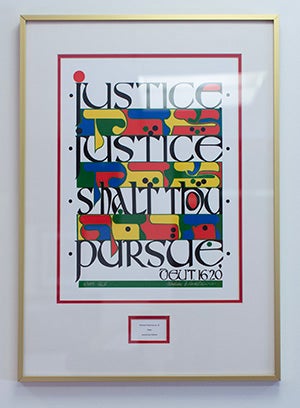
One can therefore understand why the new dean emphasizes that the start of his tenure is hardly the beginning of the law school’s “Waterstone era.” Well before he joined UCLA Law, he says, he admired the institution for its remarkable record as an innovator in clinical education, critical race studies, public service and access to a top-notch legal education. And when he came on board, Waterstone finally saw the enterprise’s ongoing success up close — a string of achievements that have been driven by the law school’s outstanding administrators, staff and students; by his immediate predecessors, Dean Jennifer Mnookin and Interim Dean Russell Korobkin; and by the other deans and interim deans who came before him.
So, Waterstone says, he could not be more excited to harness the power of the UCLA Law community to confront challenges that loom on the horizon or have yet to materialize.
“One challenge that we need to keep our eye on is the evolving regulation of legal education,” he notes. “The regulatory barriers that have constrained us, but also probably given us a false sense of comfort, are eroding — whether that’s what, if any, admissions tests are required of applicants, whether that’s restrictions in online education, and so on. But in some ways even more profound are regulatory changes for the whole legal profession. We see a lot brewing at the California level, whether it’s licensing of nonlawyers for some segment of legal practice [or] outside investment into what were previously just law firms or legal entities. There are big changes coming, and truly grappling with the role of technology and how legal products and services are delivered will be so important.”
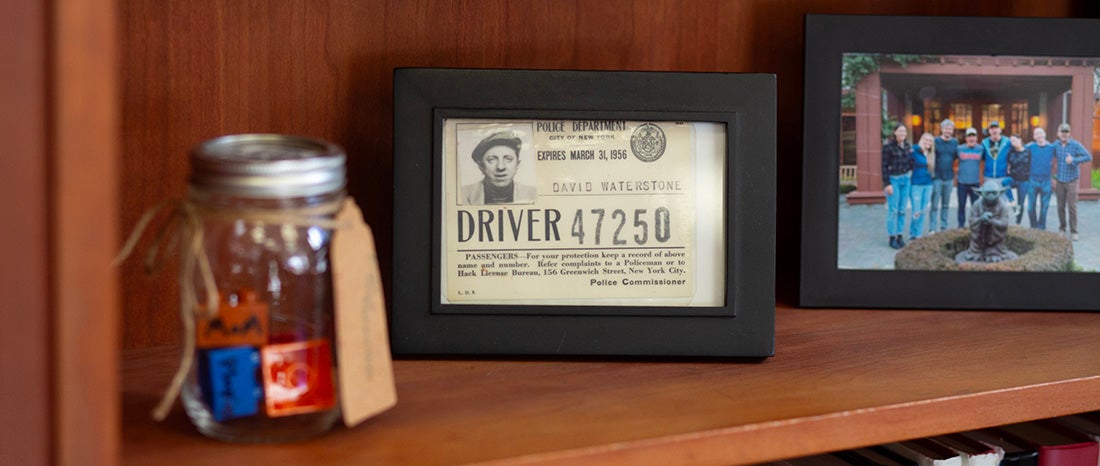
As Waterstone sees it, technology stands to make a real difference, reaching into areas where legal practice meets increasingly urgent developments in the broader society.
“We have tools that are way more powerful now than when I was a litigation associate, in terms of generative AI,” he says. “That doesn’t eliminate the need for human involvement, but it certainly changes it, and as it evolves, clients are going to be demanding that legal work be done more efficiently. At the same time, you have a crushing access-to-justice gap — in the state, in our country, in our world — where most people cannot afford to have their basic legal needs met. So, you don’t need to be a futurist to look at those two trends and think that they’re somehow going to intersect. One of my jobs will be to help us answer this question: What is the role of a forward-looking law school in preparing ourselves and our students and our graduates for that future?”
Waterstone’s wisdom is hard-earned. A Los Angeles native and 1995 graduate of UCLA, he taught in two area elementary schools before traveling across the country, for the first time in his life, to attend law school at Harvard. After earning his J.D., he clerked for Judge Richard Arnold of the U.S. Court of Appeals for the Eighth Circuit in Arkansas before returning home to put in several years as a corporate-law attorney at Munger, Tolles & Olson. He then shifted into academia, first with a professorship at the University of Mississippi School of Law and then with 17 total years at Loyola. Along the way, Waterstone made a mark as a disability law scholar who consulted with international organizations and testified before the U.S. Senate, and he earned plaudits for his teaching, including being named Outstanding First Year Professor at Northwestern University’s Pritzker School of Law, where he was a visiting professor in the year before he started his uncommonly successful run as Loyola’s dean.
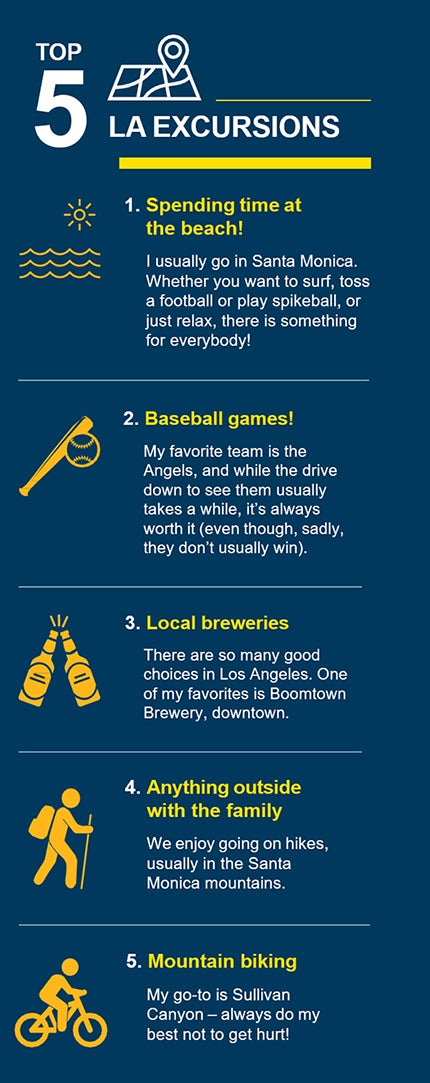 “We succeeded in many meaningful ways at Loyola, and there were three [successes] that I look back on and feel really, really good that we accomplished,” he says. “One was the evolution, development and centralization of the clinics. Two was raising more money than we ever had, to support all of the good work that we were already doing or could do. And the third was taking our evening program, which had always been a source of institutional strength but had struggled, and revamping it in pretty major ways to make it an exciting, forward-looking take on legal education. But I didn’t even envision that last accomplishment as a possibility until Year 2. It took time to understand the lay of the land, the tools that we had and how to leverage various parts of the community — because it needs to be a communitywide effort to be durable.”
“We succeeded in many meaningful ways at Loyola, and there were three [successes] that I look back on and feel really, really good that we accomplished,” he says. “One was the evolution, development and centralization of the clinics. Two was raising more money than we ever had, to support all of the good work that we were already doing or could do. And the third was taking our evening program, which had always been a source of institutional strength but had struggled, and revamping it in pretty major ways to make it an exciting, forward-looking take on legal education. But I didn’t even envision that last accomplishment as a possibility until Year 2. It took time to understand the lay of the land, the tools that we had and how to leverage various parts of the community — because it needs to be a communitywide effort to be durable.”
Thus, at UCLA Law, he has embarked on the steady work of consulting with members of five key constituencies — students, staff, faculty, alumni and partners across UCLA and the University of California — to determine where and how to lead the community to its next cutting-edge achievement. “Ultimately,” he says, “a [dean’s job] is about providing the space for members of the community to flourish and live out their highest potential.”
Bruin family values
Even for the absolute middle of August, it is unseasonably hot on UCLA’s Dickson Court when Waterstone presides over the law school’s 2023 convocation ceremony. Nevertheless, the community has turned out in droves, furiously waving paper fans, to mark the start of a school year and welcome more than 500 incoming J.D. and LL.M. students, plus some of their families and friends.
Dedicated faculty members sit with smiles on the sunny dais. Ashley Kinder ’24, the 3L president of the law school’s Student Bar Association, offers advice for surviving the daunting rigors of law school. Distinguished alumna Kim McLane Wardlaw ’79, who serves as a judge on the U.S. Court of Appeals for the Ninth Circuit, administers the Oath of Professionalism and reminds the students to maintain kindness and integrity in their legal education and practice.
All the while, Waterstone acts as emcee, introducing each speaker and taking a number of pauses to make sure that his audience, the newest students in the law school of which he is the newest dean, are managing well enough in the midafternoon heat.
His words of welcome to UCLA Law are also suitably warm. “What we are going to teach you here is how to listen, reflect and analyze,” he tells the students. “We’re going to intentionally put you in situations where you need to critique someone’s position. That’s OK. But you can do it without questioning their legitimacy, their dignity or their motivation. As a lawyer, your words are going to be most effective if they can inspire and persuade.”
His speech evokes affirming nods and appropriate instances of laughter from the crowd, a constellation of people that happens to include, standing off to one side, a young woman and young man whom one can assume are thoroughly familiar with what drives this dean: Waterstone’s two high-school-age kids have shown up to see how their dad is doing in his new gig. And their thumbs-up are a clear confirmation.
For Waterstone, of course, it all comes back to family.
There is his family of five, with whom he plays sports and watches Ted Lasso from their sofa in Santa Monica; he and his wife, Julie, a vice dean at Southwestern Law School and clinical professor of law, in addition to their two older children, also have a fifth grader. There are his two sisters, both of whom also graduated from UCLA. And there are his late mom, who would have been so proud, and his dad, who is the son of an immigrant from Eastern Europe who passed through Ellis Island not too long ago. And yes, it was with his father, who is also a lawyer, that Waterstone skipped a few law school professorship interviews to attend the game where their beloved Angels won the 2002 World Series. To be sure, any visitor to Waterstone’s office will notice that the law books and personal keepsakes that decorate the main wall all surround a framed photograph of Angel Stadium on the night when he and his dad were in the stands and the team won it all.
There is also, of course, his UCLA family, which includes the lifelong friends he made as an undergrad. During his senior year, he sat with them in the Westwood Village cantina Acapulco to watch Ed O’Bannon and Tyus Edney lead the men’s basketball team to the NCAA championship. And he still shares a block of tickets with them.
“So many of my friends from UCLA are still people I keep in touch with and who are dear to me,” he says of the core folks who represent to him the widely known and admired Bruin spirit of excellence, kindness and collegiality.
“It has been fun getting to talk to them through this experience of coming back to campus. There’s something about walking around the same place that you did when you were 18 that evokes those special, magical feelings of growth, of being out of your comfort zone,” he says.
“Just walking across this campus — it feels magnificent.”
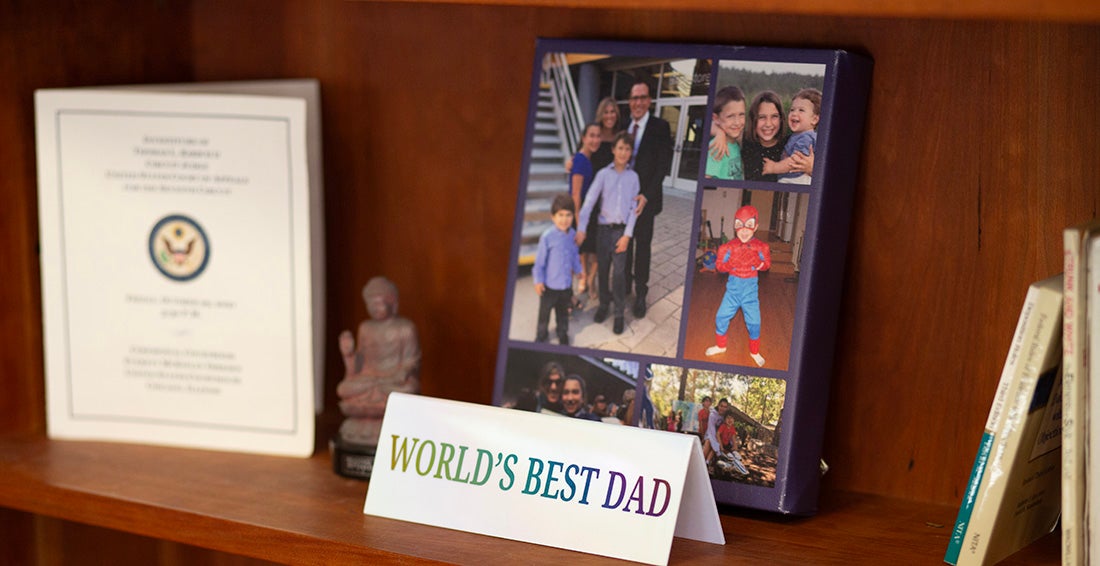
“Just walking across this campus — it feels magnificent.”